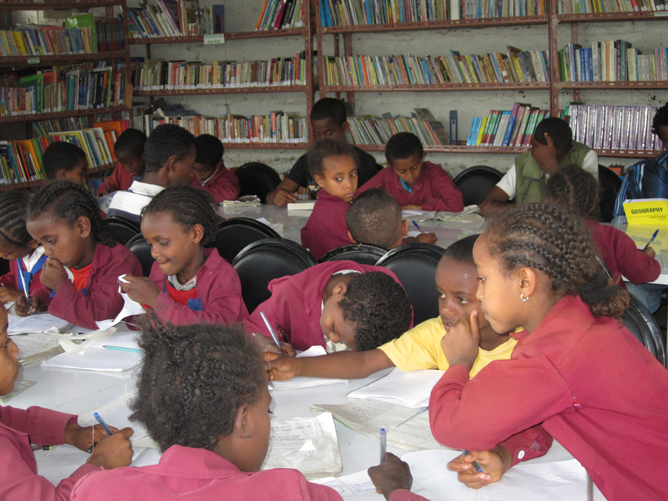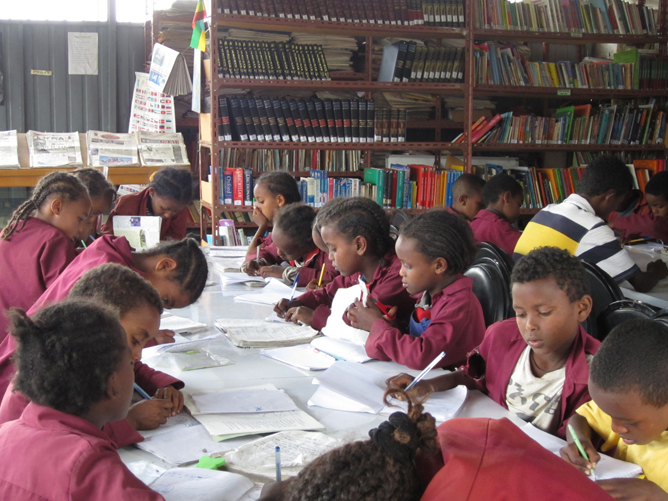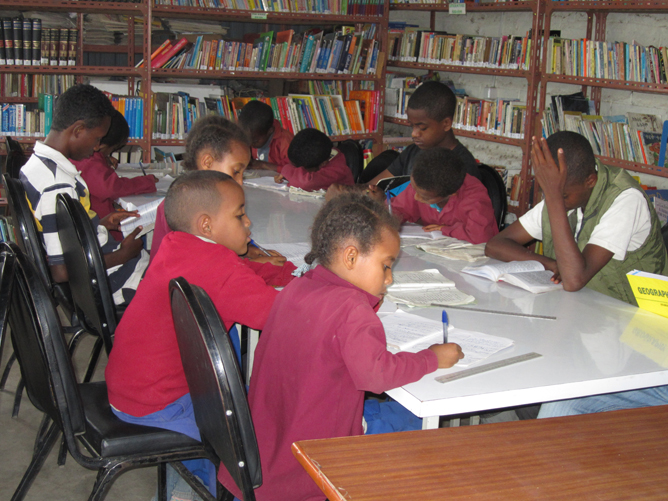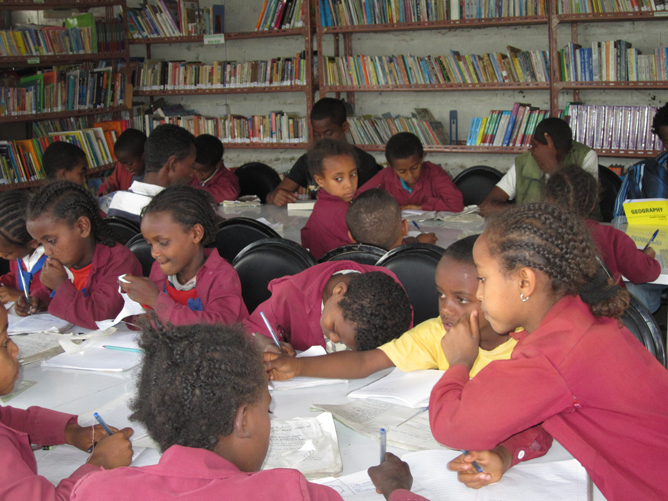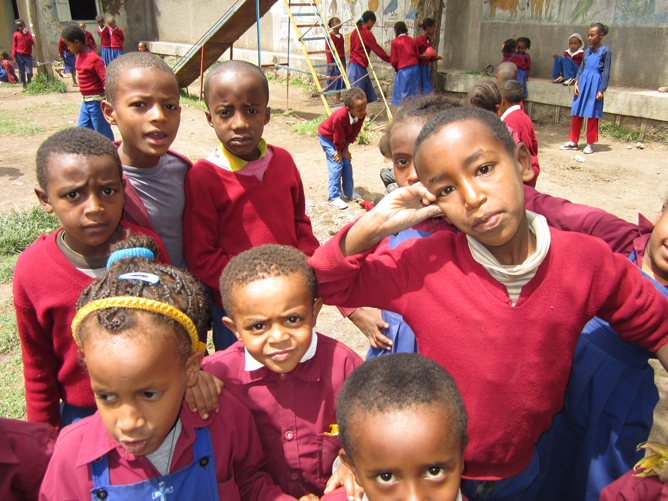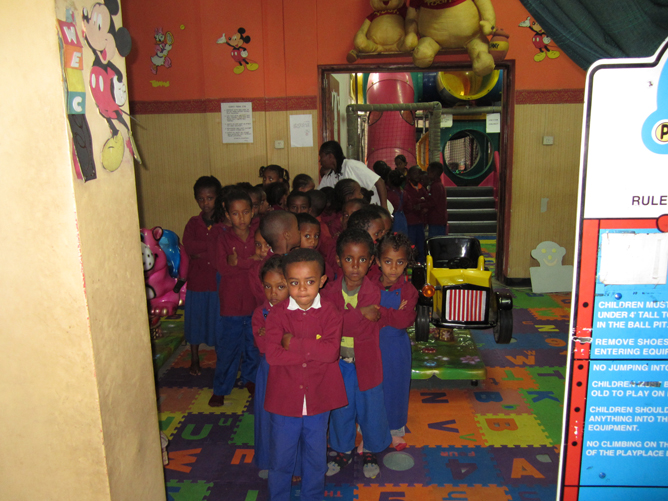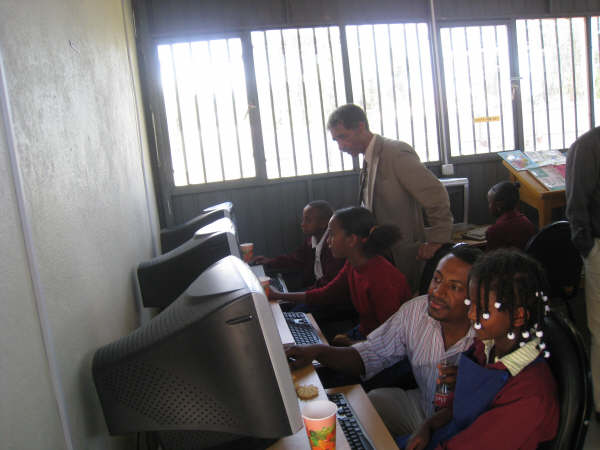The Fregenet School
How do you put a price on education? How do you place a value on a child’s chance in life? How about a whole generation of children?
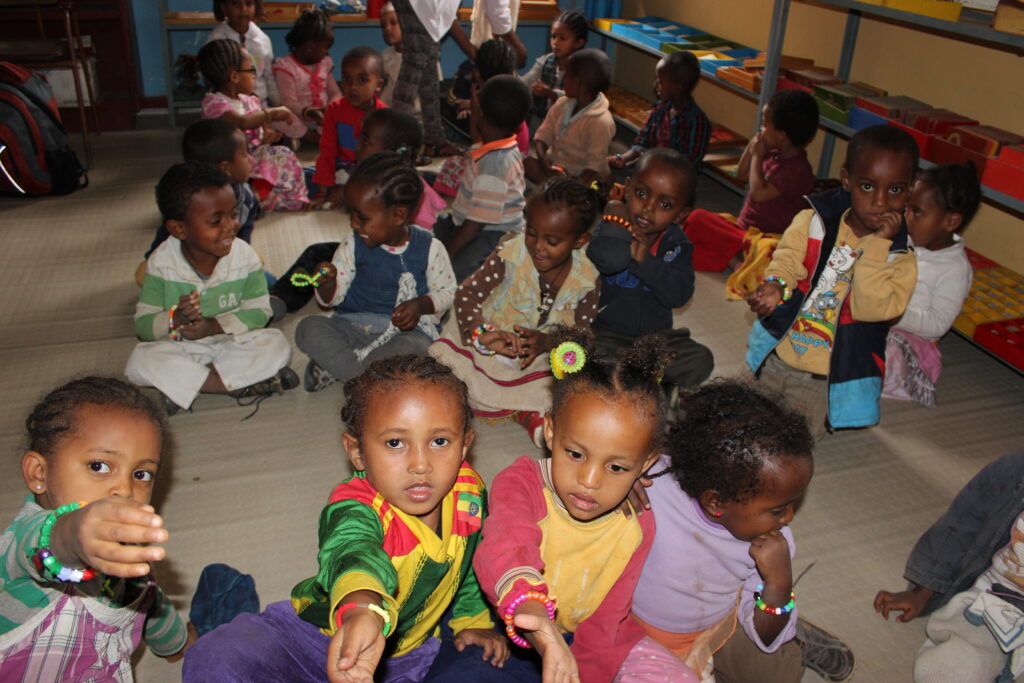
As of 2014, we have full classes from pre-KG through 4th grade. The school’s total number of staff has now reached 22, including, a site manager, teachers and multiple teacher assistants, a principal, an accountant a secretary, librarians, cooks, a janitor and security guards.
The Fregenet School
Fregenet School (Fregenet Kidan Lehitsanat) opened its doors in Addis Ababa, Ethiopia, in the fall of 2004, and enrolled 31 children ages 4 to 6 from a small and impoverished community in Addis Abeba. The student body was comprised of 16 girls and 15 boys from poor families, and HIV/AIDS orphans.
In the school’s tenth year of operation, the number of students enrolled has grown to 286 with 158 female and 128 male students to a total of 286 students on campus and off campus sites.
The school began with scant resources in a rented facility furnished with desks, chairs, two teachers, and little else other than a lot of hope, determination and a class of preschoolers.
We were not naive about the task ahead. Each child arrived with his or her own mix of apprehension and deficits including lack of regular nutrition. But in a matter of weeks there was a light behind the eyes of the students and the listlessness from those first days had given way to alert learning and playfulness.
In 2008 we took a big step forward when the foundation was able to meet its goal of providing a library with computers.
Among our 5-year goals are:
- Open additional school/campuses
- Cultivate partnerships with business, health agencies, community organizations, orphanages, and agencies that can sponsor students. Maintain close contact with families, sponsors, and orphanages to monitor progress and insure success.
- Initiate an alumni program for exited students to return to the schools to serve as tutors and volunteer in various capacities.
- Make available the facility and services (library, computer training) to children not part of the school, the families of the children and the community at large.
- Build a model school.

